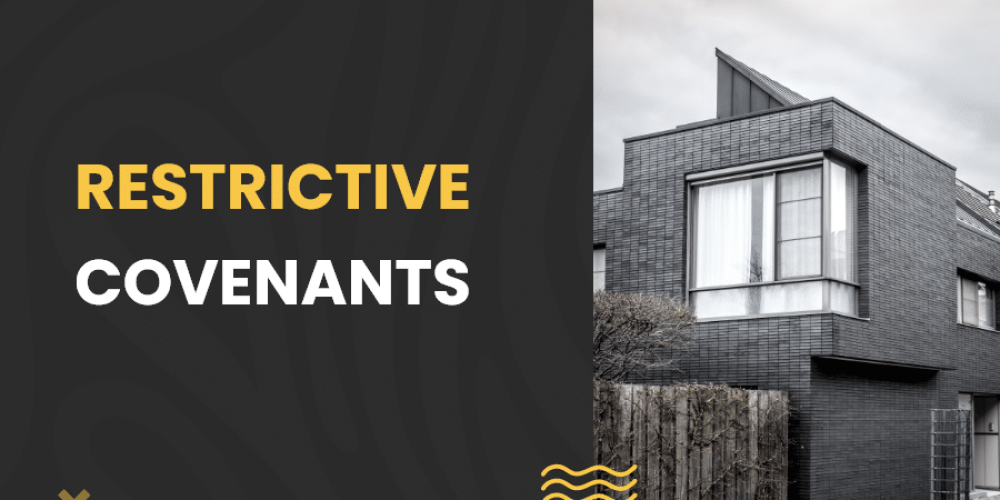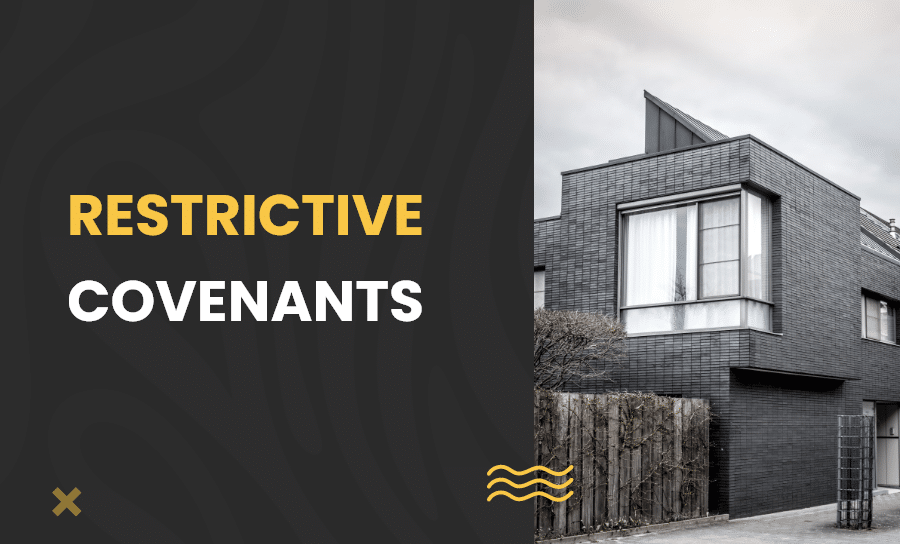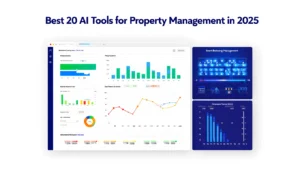
Restrictive covenants
If you’ve purchased a property or a piece of land, your Solicitor should be the one to inform you of any restrictions on the property.
However, there are many cases where one can buy property without any knowledge of restrictions and find out much too late that they breached a restrictive covenant (hearing it from your distraught neighbour is never fun).
Knowing the restrictions on your property can help you save both money and time and a potential lawsuit. Find out what a restrictive covenant is, how to find them, what to do if you breach them, and how to get rid of them if you like.
What is a restrictive covenant?
A restrictive covenant is a rule written into a property’s deeds that determines what you (the homeowner) can or cannot do to a house or piece of land.

Source: CFI
The restrictions usually are in neighbours’ interests or the surrounding area, seeking to promote a peaceful living environment. Some of the most common issues include:
Limitations on property changes
This rule usually means changing the house’s design, adding an extension or turning two houses into a flat.
Restrictions on additional structures
This rule prohibits barns or any additional buildings from being erected on the land.
Limitations on pets
Depending on the contract, this rule might prohibit a particular breed, type of animal, or the size of the pet.
Restrictions on business operations
With this rule, you can’t conduct trading or base your own business out of your home.
How to find out your restrictive covenants
Of course, the best time to find out about any restrictive covenants is before you buy the property. Your solicitor should be the one to tell you.
If your solicitor does not tell you, that means either there are no deed restrictions, or they just forgot to tell you.
If you think that there are restrictions on your property, there are three things you can do:
Look in your deed
If you are unable to find it, you can get your deed from the recorder’s office where the original was filed. As you scan the deed, check for words like “covenant” or “agreements.”
Check the seller’s disclosure statement
If you still can’t find any restrictive covenants, you can check to see what was included in the seller’s disclosure statement.
Contact an attorney
If you still have a pressing feeling that your property has restrictive covenants, you can contact an attorney who can help you.
If you breach a restrictive covenant
Maybe you didn’t even know about the restrictions (or maybe you did), and you breached one of the deed restrictions. If you ever do, some events might follow:
- You could be forced to undo any work (i.e. changing of or building on the property)
- Pay a fee (the cost ranges, but expect thousands of pounds)
- Face legal action
If you ever breach the deed restriction without knowing, you can claim against your solicitor for the losses you suffered.
Say you breached a covenant, but you want to sell the property. If you have received no complaints or challenges lasting a little over a year, you should get restrictive covenant insurance to protect you and what you have done.
How to get rid of a restrictive covenant
Whether you bought a property or you are looking to buy a property with unwanted restrictive covenants, there are at least three options to challenge it:
Negotiate the release of the covenant
Before buying the property, you could negotiate with the seller and find out if they would be willing to revoke it or amend it.
Apply to the Lands Tribunal
You can also ask for the covenant to be discharged or modified to the Lands Tribunal, explaining why the deed restriction no longer serves a useful purpose.
Pay the owner
If those don’t work, you might be able to pay the seller to release the covenant or amend it.
Conclusion
Now that you know more about restrictive covenants, you can decide if you can live with them and use them to your benefit or not. Don’t fall in love with a property before you find out the information.
It’s important to consider any deed restrictions before you buy property, so always make sure to check with your solicitor.





